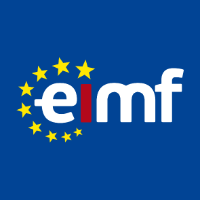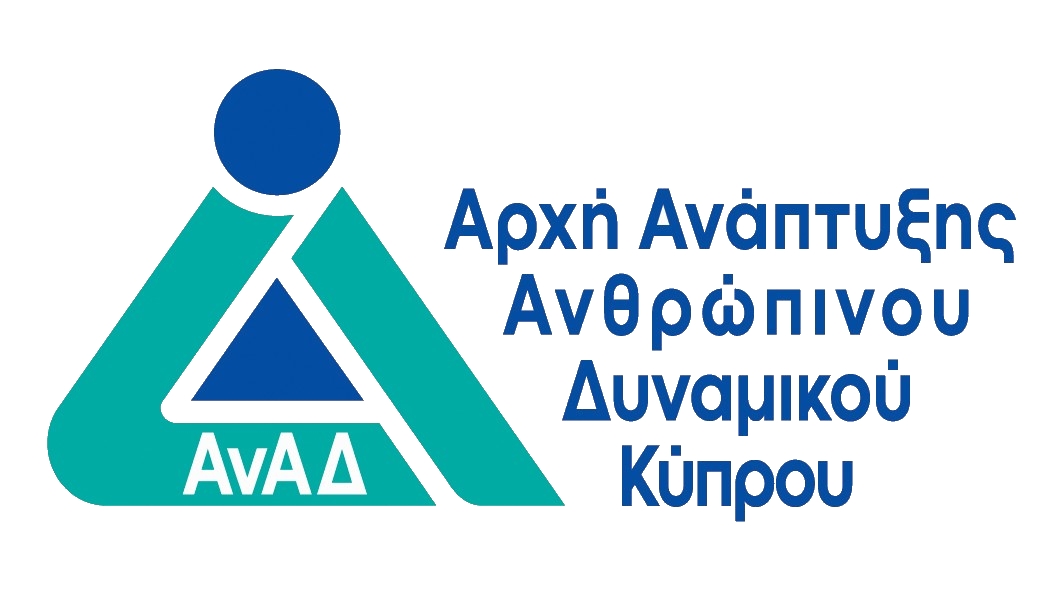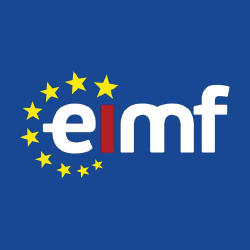
LIVE ONLINE WEBINAR - Certified Fraud Examiner (CFE) Preparation Course
- Χρηματοοικ. Ασφαλιστικά Τραπεζικά - Λογιστικά/ Έλεγχος/ Φορολογικά

ΠΕΡΙΓΡΑΦΗ
The EIMF Live Online Learning Experience
EIMF subject-matter experts deliver engaging and interactive courses across a broad spectrum of areas, that can be enjoyed in the comfort of your own chosen environment. Read more
Course Overview
CFEs have a unique set of skills that are not found in any other career field or discipline; they combine knowledge of complex financial transactions with an understanding of methods, law, and how to resolve allegations of fraud. Fraud examiners are also trained to understand not only how fraud occurs, but why.
Get the skills and knowledge you need to pass the CFE Exam by attending the EIMF CFE preparation course. This 42-hour, instructor-led live-online course will help you acquire the knowledge and concepts tested on the CFE Exam. This course can be combined with the CFE Exam Prep Course software, that can provide you with a great combination for passing the exam. Specifically, the prep course will cover the below areas:
- Fraud Prevention and Deterrence: Tests your knowledge of why people commit fraud and what can be done to prevent it. Topics covered in this section include crime causation, white-collar crime, occupational fraud, fraud prevention, fraud risk assessment, and the ACFE Code of Professional Ethics.
- Financial Transactions: This section tests your knowledge of the types of fraudulent financial transactions incurred in accounting records. To pass this section, you will be required to demonstrate knowledge of these concepts: basic accounting and auditing theory, fraud schemes, internal controls to deter fraud and other auditing and accounting matters.
- Fraud Investigation: This section includes questions in the following areas: interviewing, taking statements, obtaining information from public records, tracing illicit transactions, evaluating deception and report writing.
- Legal Elements of Fraud: This section ensures that you are familiar with the many legal ramifications of conducting fraud examinations, including criminal and civil law, rules of evidence, rights of the accused and accuser and expert witness matters.
Specifically, the CFE Exam prep course content will be covered by attending the below modules (below can also be attended as individual courses):
- Fraud Investigation, Fraud Prevention and Deterrence
- Legal Elements of Financial Fraud
- Financial Transactions & Fraud Schemes
ΣΚΟΠΟΣ ΣΕΜΙΝΑΡΙΟΥ
By the end of the programme, participants will be able to:
- Define main methods of collecting evidence
- Obtain interviewing skills with regards to fraud investigation
- Gather information with regards to fraud investigation
- Learn about ethical responsibilities of fraud examiners
- Understanding white-collar crimes.
- Learn about fraud prevention programs
- Learn about main accounting concepts.
- Understand the types of financial statements.
- Learn about accounting principles and standards.
- Analyse and recognize financial statement fraud.
- Recognize various types of fraud schemes.
- Obtain an overview of the financial system
- Learn about the civil and criminal justice system
- Understand the main concepts of money laundering
- Learn to apply basic principles of evidence collected
ΣΕ ΠΟΙΟΥΣ ΑΠΕΥΘΥΝΕΤΑΙ
- Internal & External Auditors
- Accountants
- Lawyers
- Risk Managers & Compliance Officers
- Chief Operating Officers & Financial Controllers
- Executive Management
- Accounting and financial professionals
- Internal and external auditors of both public and private sectors
- Business owners
- Professionals in banks and other financial institutions
- Compliance Officers
- Fraud officers
ΠΕΡΙΣΣΟΤΕΡΕΣ ΠΛΗΡΟΦΟΡΙΕΣ
Training Outline
Fraud Investigation, Fraud Prevention and Deterrence
Analyzing evidence
- Collecting Evidence
- Data Analysis and Reporting Tools
- Digital Forensics
Interviewing
- Interview Theory and Application
- Interviewing Suspects and Signed Statements
Gathering Information
- Covert Operations
- Sources of Information
- Tracing Illicit Transactions
Investigation Procedures
- Planning and Conducting a Fraud Examination
- Report Writing
Financial Transactions & Fraud Schemes
Accounting Concepts
- Accounts and the Accounting Cycle
- Journal Entries
- Accounting Methods
Financial Statements
- Balance Sheet
- Income Statement
- Statement of Changes in Owners’ Equity
- Statement of Cash Flows
- Users of Financial Statements
Generally Accepted Accounting Principles (GAAP)
- S. GAAP
- International Financial Reporting Standards
- Departures from Generally Accepted Accounting Principles
Occupational Fraud Schemes
- Cash Receipts Schemes
- Corruption
- Financial Statement Fraud
- Fraudulent Disbursements
- Inventory and other assets
Other Fraud Schemes
- Consumer Fraud
- Contract and Procurement Fraud
- Cyberfraud
- Financial Institution Fraud
- Health Care Fraud
- Identity Theft
- Insurance Fraud
- Payment Fraud
- Theft of Data and Intellectual Property
Legal Elements of Financial Fraud
Overview of the legal system
- Bankruptcy (Insolvency) Fraud
- Law related to Fraud
- Money Laundering
- Securities Fraud
- Tax Fraud
Practice and Procedure
- Basic principles of evidence
- Individual rights during examination
- Testifying
Punishing Offenders
- The civil justice system
- The criminal justice system
Industry Experts
Panayiotis Antoniou
Panayiotis is a professional with 18 years-experience in the Banking and Insurance Sectors. He is currently the CEO of a Risk Management Services Company of a large Advisory Group which specialises in advising matters regarding Risk and Compliance. Panayiotis is a holder of CySEC’s AML and Advanced Certificates, a Certified Anti-Money Laundering Specialist (CAMS), a Chartered FCSI at the Chartered Institute of Securities and Investments (CISI), a member of the Project Management Institute (PMI), a member of the Institute of Risk Management (IRM), a member of the Association of Certified Chartered Accountants (ACCA) and member of the Association of Certified Fraud Examiners (ACFE). He is also a HRDA accredited trainer. Moreover, he is awarded with the ISO31000 Lead Risk Manager certification, which is the standard for best practices for managing risks in a structured risk framework. He is also an accredited trainer by PECB body awarding ISO certificates. Panayiotis holds a Bachelor degree in Computer Science from State University of New York, USA, a Master’s degree in Information Systems from Virginia Tech, USA as a Fulbright Scholar, a Master’s in Business Administration (MBA) and a Master’s in Public Sector Management (MPSM).
Anna Stylianou
Anna has extensive experience in the financial industry in the field of regulatory compliance. She has worked for many years in the banking industry and has served as a member of the Board of Directors in entities supervised by the Central Bank of Cyprus and CySEC. Through her long-term experience she has obtained a thorough understanding of the overall financial services regulatory requirements, ensuring that regulated entities implement appropriate policies and procedures to comply with regulatory obligations especially in the field of AML. Furthermore, Anna has worked with reputable lawyers in the legal industry and acted as an independent trusted advisor for cases and projects in the areas of her expertise. She is a holder of a BSc (Hons) in the Retail Financial Services and has an Associateship from the London Institute of Banking and Finance (ALIBF). Anna is also certified by CySEC with the Advanced and AML Certification, a Certified Fraud Examiner (CFE) and a certified trainer by the Human Resource and Development Authority (HRDA).
Training Style
The programme is designed to assist participants to investigate fraud cases and understand the ethic principles with regards to fraud examination but also how to prevent fraud. The course will also prepare the participants for the CFE examination. It will provide the participants with the appropriate skills to conduct investigations with regards to fraud but also help them understand the main principles required for fraud prevention.
What does a fraud examiner do?
Certified fraud examiners uncover, prevent, and deter fraud. On the job, they study financial records for discrepancies and collaborate with law enforcement to bring criminals to justice. In this latter role, they testify during trials and submit evidence. Independent research shows that when a company or organization hires certified fraud examiners, that company uncovers fraud much faster and recovers more money than companies that do not employ them.
Who is the ACFE?
The Association of Certified Fraud Examiners (ACFE) is the world’s largest anti-fraud organization and premier provider of anti-fraud training and education. Together with more than 85,000 members, the ACFE is reducing business fraud world-wide and inspiring public confidence in the integrity and objectivity within the profession.
Details of the CFE Exam:
The CFE Exam consists of four sections: Financial Transactions and Fraud Schemes, Law, Investigation and Fraud Prevention and Deterrence. Candidates have 2 hours to complete each section of the CFE Exam. Although the total exam time is approximately 8 hours, applicants have 30 days from when they receive their CFE Exam Keys to finish the exam. Applicants may take each section of the exam at their own convenience if all sections are completed by the end of the 30 days. Each CFE Exam Key expires 24 hours after it has been entered.
CFE Exam requirements
Like many organizations that grant professional certifications, ACFE requires candidates to meet education and experience standards. ACFE, however, uses a unique point system to determine when candidates can take the exam and apply for certification. Some professionals may qualify to sit for the certified fraud examiner exam but still need additional experience before earning certification. Click here to review the CFE exam requirements
How to apply?
The CFE Exam and submit all your documentation one month before you plan to take the CFE Exam.The CFE Exam online application consists of four qualifying sections: Qualifications, Experience and Character, Signature Statement and Payment.
The cost to take the CFE Exam is $450. If you have purchased the CFE Exam Prep Course Software, the fee is $350. Apply Online Here
If you are unable to apply online, you may download the CFE Exam application and submit it by mail or email. For applications sent via fax, mail or email, allow an additional 7-10 business days for processing. This time frame is in addition to mail delivery times.
Qualifying with CFE
To earn the CFE credential, the candidate will need to:
Meet the entry requirements,
Register as an Associate member of the ACFE,
Submit the CFE exam application with proof of education and professional recommendations,
Pass the CFE Exam and
Possess 2 years of professional experience either directly or indirectly related to fraud. The ACFE recognizes the following areas as qualified professional experience:
Accounting and auditing
Criminology and sociology (sociology is acceptable only if it relates to fraud.)
Fraud investigation
Loss prevention (experience as a security guard or equivalent is not acceptable)
Law relating to fraud
Other experience can qualify, but must be reviewed for applicability.
ACFE Membership
ACFE Membership is open to individuals of all job functions, industries and levels of experience who are interested in the prevention, detection and deterrence of fraud. The ACFE mission is to support members by providing access to the knowledge, resources and training they need to do their job now and at every stage of their career. Find our more here
CPD Recognition
This programme may be approved for up to 42 CPD units in AML, Financial Regulation and Fraud. Eligibility criteria and CPD Units are verified directly by your association, regulator or other bodies which you hold membership.
Πληροφορίες Εκπαιδευτή
Αναλυτικό Κόστος Σεμιναρίου
Για Δικαιούχους ΑνΑΔ
- € 1155.00
- € 714.00
- € 219.45
- € 441.00
- € 524.79
Για μη-Δικαιούχους ΑνΑΔ
- € 1155.00
- € 0.00
- € 219.45
- € 1155.00
- € 1,374.45
ΠΡΟΓΡΑΜΜΑ ΣΕΜΙΝΑΡΙΟΥ
Παρασκευή - 29 Οκτ 2021
Ώρα
17:30 - 20:45
ΕΚΠΑΙΔΕΥΤΗΣ:
Παναγιώτης ΑντωνίουΤοποθεσία:
OnLine Virtual Classroom
Τετάρτη - 03 Νοε 2021
Παρασκευή - 05 Νοε 2021
Τετάρτη - 10 Νοε 2021
Παρασκευή - 12 Νοε 2021
Σάββατο - 20 Νοε 2021
Σάββατο - 27 Νοε 2021
Τρίτη - 21 Δεκ 2021
Τετάρτη - 22 Δεκ 2021
Τρίτη - 28 Δεκ 2021
Τετάρτη - 29 Δεκ 2021
Ώρα
16:30 - 21:00
ΕΚΠΑΙΔΕΥΤΗΣ:
Παναγιώτης ΑντωνίουΤοποθεσία:
OnLine Virtual Classroom
 Ελληνικά
Ελληνικά  English
English



 Αγγλικά
Αγγλικά
 42 ώρες
(
10 μέρες
)
42 ώρες
(
10 μέρες
)


















































































